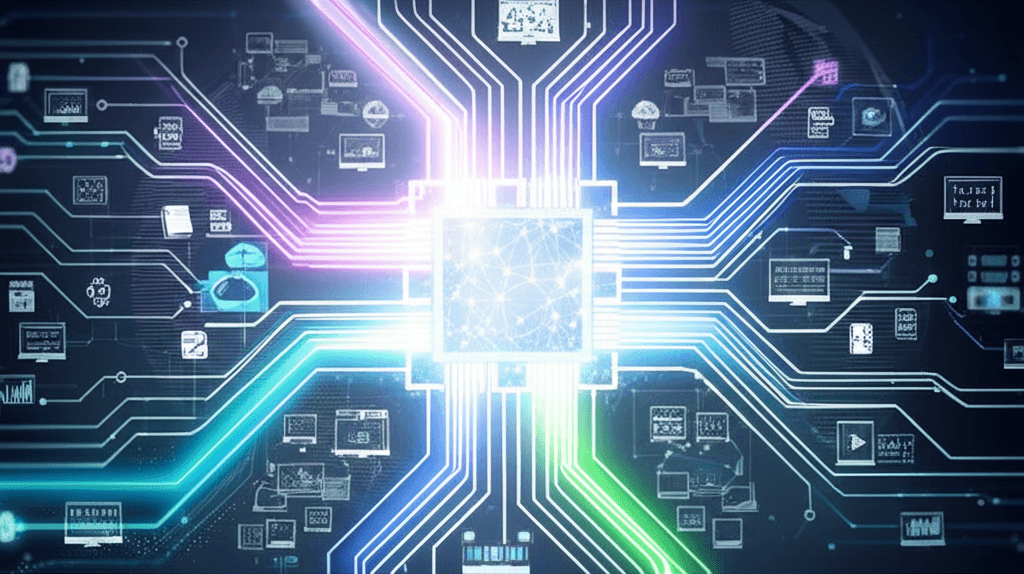Microsoft Becomes AI 'Intelligence Engine,' Targets Eight Billion People
The tech giant's pivot to an "intelligence engine" promises global empowerment, but navigates profound ethical and financial challenges.
July 27, 2025

Microsoft is embarking on a profound strategic pivot, aiming to transform itself from a "software factory" into an "intelligence engine" with the ambitious goal of empowering every one of the world's eight billion people.[1][2][3][4] This vision, articulated by CEO Satya Nadella, signals a fundamental shift beyond traditional software products and toward a future where artificial intelligence is deeply integrated into every facet of technology and daily life.[5] The company is making massive investments in AI infrastructure, talent, and strategic partnerships to build a comprehensive ecosystem that positions it at the forefront of the AI revolution.[6][7][1][8] This initiative is not merely about creating new products but about fundamentally reshaping how individuals and organizations innovate, collaborate, and achieve their goals.[2][9]
The cornerstone of Microsoft's strategy is the deep integration of AI, branded as "Copilot," across its entire product suite, from the Azure cloud platform to its ubiquitous Microsoft 365 productivity tools.[10][11] By embedding AI capabilities directly into the daily workflows of millions, Microsoft is creating a powerful, self-perpetuating ecosystem designed for deep customer entrenchment.[8] This strategy aims to make AI an indispensable assistant for knowledge workers and developers, automating tasks, generating content, and providing intelligent insights.[12][11] The company's massive capital expenditures, projected to exceed $80 billion in fiscal year 2025, are intended to create a formidable infrastructure barrier for competitors.[2][8] This investment is fueling the development of proprietary AI models, such as the internal "MAI" family, and the build-out of its own custom silicon, like the "Maia" line of chips, to optimize performance within its Azure cloud infrastructure.[13] This vertical integration strategy, from the chip to the application layer, mirrors a broader trend in the tech industry where major players are rethinking their organizational models to prioritize AI.[6]
Recognizing that a single AI model cannot serve all needs, Microsoft is pursuing a multi-faceted approach to its AI offerings.[14] While its deep partnership with OpenAI, which involved a more than $13 billion investment, gave it an early and significant advantage in the AI race, the company is actively diversifying its AI alliances.[15][7][16] This includes a multi-year partnership with the French AI startup Mistral, making its commercial models available on the Azure platform.[15][17][18] This move not only broadens the choices available to developers on Azure but also addresses concerns about market dominance and regulatory scrutiny over its close ties to OpenAI.[17][18] By supporting a diverse range of AI models from various partners, including Anthropic and xAI, Microsoft aims to create a more open and modular system that empowers a wide spectrum of developers and businesses.[14][19] The Azure AI platform serves as the foundation for this strategy, offering a comprehensive suite of tools, services, and over 1,700 foundation models from multiple creators.[20][21][22][23] This allows developers to experiment, fine-tune, and deploy AI models that best suit their specific needs.[19][23]
The implications of Microsoft's ambition to become a global "intelligence engine" are vast and multifaceted. For the enterprise, it promises a new era of productivity and innovation, where AI agents can automate complex tasks, facilitate smarter collaboration, and transform decision-making processes.[5][2][24] The enhancements to Copilot, including agentic capabilities that can autonomously handle multi-step tasks, signal a future where AI becomes a proactive teammate rather than just a reactive tool.[14] However, this vision is not without significant challenges and risks. The financial viability of its AI products is still under scrutiny, with some analyses suggesting that offerings like Microsoft 365 Copilot may be strategic loss-leaders designed to drive platform adoption.[8] Furthermore, the immense energy and water consumption of its AI data centers presents a direct conflict with its sustainability goals and raises significant environmental, social, and governance (ESG) concerns.[8] There are also profound societal and ethical implications to consider, including job displacement, algorithmic bias, and the potential for mass misinformation, which create significant reputational and regulatory hurdles.[8] The company's provision of AI and cloud tools to military clients has already sparked shareholder activism and raised questions about its human rights due diligence.[25]
In conclusion, Microsoft's quest to become an "intelligence engine" for eight billion people represents a bold and transformative vision for the future of technology.[1][2] Under Satya Nadella's leadership, the company has strategically positioned itself at the center of the AI revolution through massive infrastructure investments, deep product integration, and a diversifying portfolio of AI partnerships.[5][7][26] The goal is to democratize AI, making powerful tools accessible to every developer, organization, and individual.[27] While the potential benefits in terms of productivity and innovation are immense, the path forward is laden with financial, geopolitical, and ethical challenges.[8] Successfully navigating these complexities will be critical for Microsoft to not only achieve its ambitious goal but also to ensure that the AI-powered future it is building is responsible, equitable, and ultimately beneficial for all of humanity.[28]
Sources
[8]
[10]
[11]
[14]
[15]
[16]
[17]
[18]
[19]
[20]
[21]
[22]
[23]
[24]
[25]
[26]
[27]